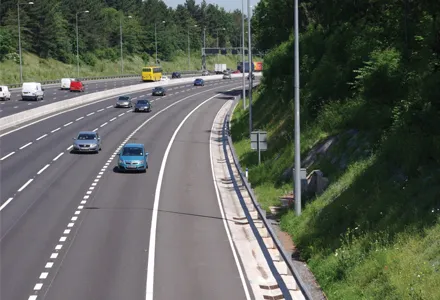A slip resistant, waterproof surface has solved the puddle problem on a footbridge in the UK. The local council was seeking a solution to the problem of water accumulation on the heavily used Angmering footbridge which extends over the A259. Contractor May Gurney, approached Gaysha Specialist Surfaces, which is a specialist in innovative resin paving products, to undertake the resurfacing work. Gaysha Specialist Surfaces laid 190m2 of Tripave, a durable rapid cure surfacing system based on methyl methacryla
February 13, 2012
Read time: 1 min

A slip resistant, waterproof surface has solved the puddle problem on a footbridge in the UK. The local council was seeking a solution to the problem of water accumulation on the heavily used Angmering footbridge which extends over the A259. Contractor May Gurney, approached 2585 Gaysha Specialist Surfaces, which is a specialist in innovative resin paving products, to undertake the resurfacing work. Gaysha Specialist Surfaces laid 190m2 of Tripave, a durable rapid cure surfacing system based on methyl methacrylate (MMA) resin technology. This product suits duties for pedestrian and traffic applications, particularly where time critical installation is a high priority. The resin surface can be expected to have a useful life of at least 10-25 years according to Gaysha Specialist Surfaces. Using the resin bound method, the aggregate and the resin are mixed together and spread over a prepared base.







